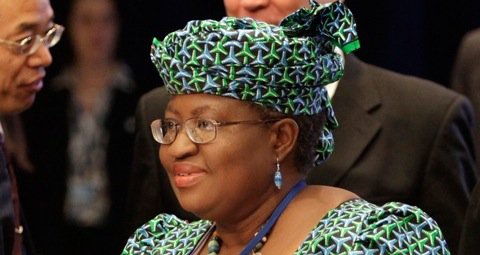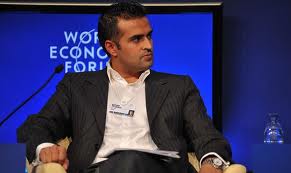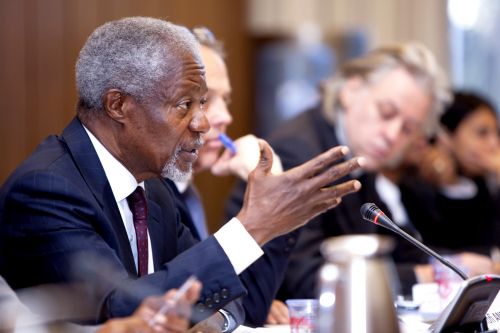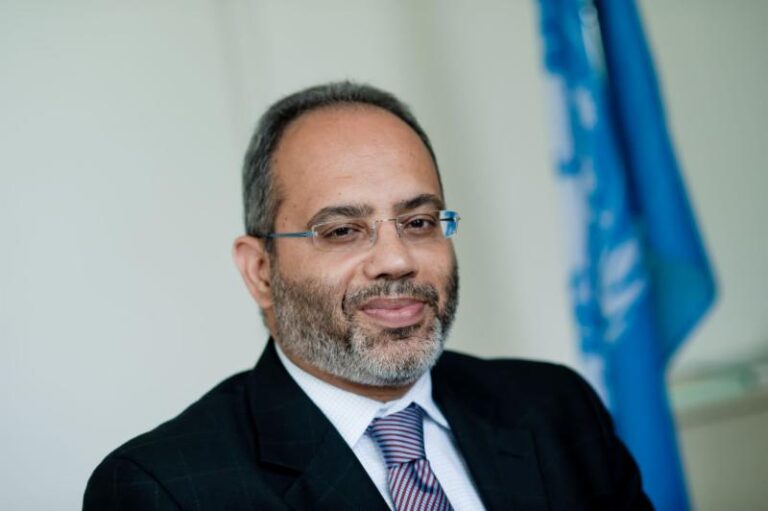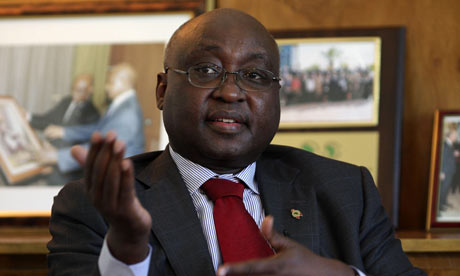Africa: How Young Africans Can Create Jobs
November 18, 2014
 Dr. Babatunde Osotimehin[/caption]
Dr. Babatunde Osotimehin, executive director of the United Nations Population Fund, tells AllAfrica's Tami Hultman why and how young Africans can drive the continent and its economy upward and forward. He was interviewed on the "State of the World Population", the fund's flagship report, which this year urges nations to seize the opportunity provided by the "demographic dividend" which occurs when the number of people of working age becomes larger than that of non-working age.
Why do you think investing in youth can create an economic miracle and transformation in Africa?
It's simple. Africa has the most youthful population in the world today.
There are 1.8 billion young people in developing countries today and Africa and Asia have 90 percent of them. Most African countries have a structure in which 70 percent of people are below ages 30 to 35. You have a situation where you have the energy, the vitality, the innovation and the creativity and potential of young people available in Africa.
What they are looking for... is education. I mean proper education, quality education, skills development, entrepreneurship training, access to reproductive health and good governance. Then we will achieve the objective which we are talking about. If we do that and put that in place now, we will reach that dividend and Africa will move considerably.
A large number of jobs will need to be created, to put the youth's energy to use. How do you see those jobs happening?
By encouraging start-ups. By encouraging the innovation and creativity of young people to start their own businesses. We'll end up with small to medium-sized enterprises that will provide jobs to young people. The public or private sector in any one country cannot absorb the number of young people available to be employed, so we have to be innovative...
[W]e have to create the opportunity for young people to access credit, to try out their innovative and creative ideas in order for them to be able to create jobs.
Can you tell us more about the forced childhood marriage of girls?
If we are going to achieve these dividends, we have to address the issue of early and forced marriage. We have to work on the issue of girls staying in school until the time of maturity so they can actually become agents of their own. That is a very important piece of what we're talking about. These young adults must be given the information and access to reproductive health services so they can decide when they want to have children, how many they want to have, and what space they want to have between those kids. I think those are three major components of the demographic initiative.
What are the obstacles to curbing child marriage?
In many communities, girls are not even allowed to go to school. They are married off too early, they are required to have children too early.
Dr. Babatunde Osotimehin[/caption]
Dr. Babatunde Osotimehin, executive director of the United Nations Population Fund, tells AllAfrica's Tami Hultman why and how young Africans can drive the continent and its economy upward and forward. He was interviewed on the "State of the World Population", the fund's flagship report, which this year urges nations to seize the opportunity provided by the "demographic dividend" which occurs when the number of people of working age becomes larger than that of non-working age.
Why do you think investing in youth can create an economic miracle and transformation in Africa?
It's simple. Africa has the most youthful population in the world today.
There are 1.8 billion young people in developing countries today and Africa and Asia have 90 percent of them. Most African countries have a structure in which 70 percent of people are below ages 30 to 35. You have a situation where you have the energy, the vitality, the innovation and the creativity and potential of young people available in Africa.
What they are looking for... is education. I mean proper education, quality education, skills development, entrepreneurship training, access to reproductive health and good governance. Then we will achieve the objective which we are talking about. If we do that and put that in place now, we will reach that dividend and Africa will move considerably.
A large number of jobs will need to be created, to put the youth's energy to use. How do you see those jobs happening?
By encouraging start-ups. By encouraging the innovation and creativity of young people to start their own businesses. We'll end up with small to medium-sized enterprises that will provide jobs to young people. The public or private sector in any one country cannot absorb the number of young people available to be employed, so we have to be innovative...
[W]e have to create the opportunity for young people to access credit, to try out their innovative and creative ideas in order for them to be able to create jobs.
Can you tell us more about the forced childhood marriage of girls?
If we are going to achieve these dividends, we have to address the issue of early and forced marriage. We have to work on the issue of girls staying in school until the time of maturity so they can actually become agents of their own. That is a very important piece of what we're talking about. These young adults must be given the information and access to reproductive health services so they can decide when they want to have children, how many they want to have, and what space they want to have between those kids. I think those are three major components of the demographic initiative.
What are the obstacles to curbing child marriage?
In many communities, girls are not even allowed to go to school. They are married off too early, they are required to have children too early.
They disappear from the statistics. Even when they go to school, they are not allowed to stay long enough to reach maturity. Government, political leaders, community leaders, and religious leaders have to accept the issue of gender parity. They have to accept the issues of empowerment of women, and the ability of women to know who they are in society, to contribute effectively like men, in order for us to move the gender forward.
Do you think civil society institutions and media can help advance that agenda by reporting on the issue?
Big time, big time. I think the media has a great deal of opportunity to do that, and I believe that civil society engaging effectively and positively can actually move the agenda forward. These civil society organizations can begin to advocate for themselves. This is something that needs to happen from the ground up, where it can actually become the movement we want to have.
Nigeria has the largest economy in Africa. What is the importance of taking note of Nigeria?
Nigeria has the opportunity to do many great things. With some of the revenues from petroleum, young people are building capacity. With capacity they become economic participants of growth moving forward. I believe that we can do that given the fact that Nigeria has a large intellectual base.
The report shows that 40 countries are in the early stages of investment in youth. Can you talk about that?
Nigeria as well. In southern Nigeria and other parts of Africa there are the beginnings of this, but we need to intensify the effort. it is not a given, it is not automatic. It is something for which investments have to be made. Investments that exist now need to be increased for us to realize the dividend across the continent.
How do you see the Ebola epidemic in West Africa impacting the issues raised by the report?
I expect it will be a slight setback. The economies of those countries have been affected, and will be affected going forward. Given the attention and coordination that the international community has given to Ebola now, I think that we see light at the end of the tunnel; that we can overcome this. We can go back to helping those countries to get back on their feet. I believe that it is a temporary setback, but I hope that they will come into their own.
Are you optimistic about Africa's future?
I'm very optimistic! Africa today has nowhere to go but upward and forward.
Is there anything else you would like to say?
Everything we have discussed will only happen if girls are allowed to go to school and stay in school, and reach their full potential.
*Source
Allafrica]]>

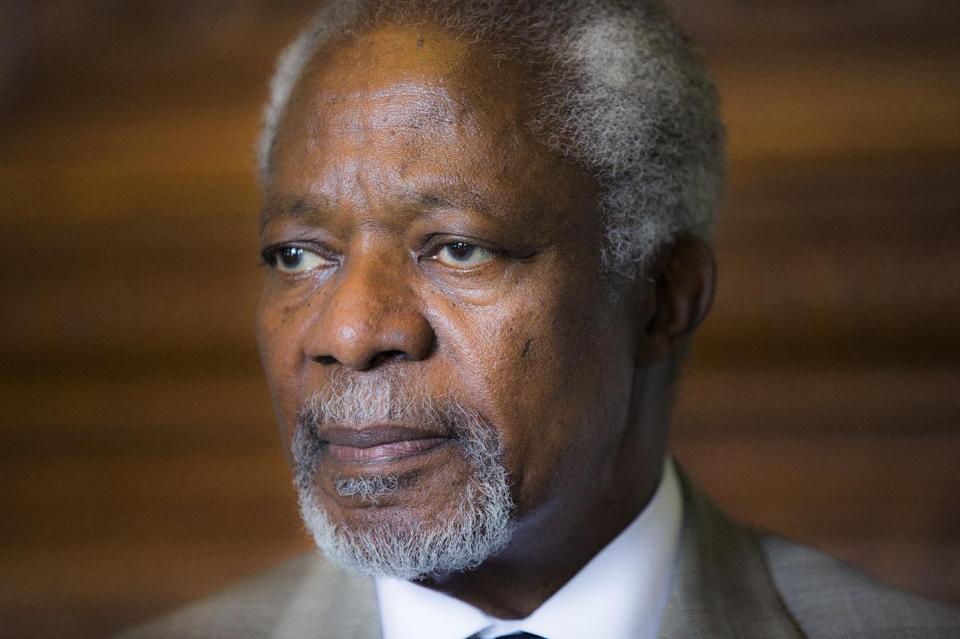




 Dr. Babatunde Osotimehin[/caption]
Dr. Babatunde Osotimehin, executive director of the United Nations Population Fund, tells AllAfrica's Tami Hultman why and how young Africans can drive the continent and its economy upward and forward. He was interviewed on the "State of the World Population", the fund's flagship report, which this year urges nations to seize the opportunity provided by the "demographic dividend" which occurs when the number of people of working age becomes larger than that of non-working age.
Why do you think investing in youth can create an economic miracle and transformation in Africa?
It's simple. Africa has the most youthful population in the world today.
There are 1.8 billion young people in developing countries today and Africa and Asia have 90 percent of them. Most African countries have a structure in which 70 percent of people are below ages 30 to 35. You have a situation where you have the energy, the vitality, the innovation and the creativity and potential of young people available in Africa.
What they are looking for... is education. I mean proper education, quality education, skills development, entrepreneurship training, access to reproductive health and good governance. Then we will achieve the objective which we are talking about. If we do that and put that in place now, we will reach that dividend and Africa will move considerably.
A large number of jobs will need to be created, to put the youth's energy to use. How do you see those jobs happening?
By encouraging start-ups. By encouraging the innovation and creativity of young people to start their own businesses. We'll end up with small to medium-sized enterprises that will provide jobs to young people. The public or private sector in any one country cannot absorb the number of young people available to be employed, so we have to be innovative...
[W]e have to create the opportunity for young people to access credit, to try out their innovative and creative ideas in order for them to be able to create jobs.
Can you tell us more about the forced childhood marriage of girls?
If we are going to achieve these dividends, we have to address the issue of early and forced marriage. We have to work on the issue of girls staying in school until the time of maturity so they can actually become agents of their own. That is a very important piece of what we're talking about. These young adults must be given the information and access to reproductive health services so they can decide when they want to have children, how many they want to have, and what space they want to have between those kids. I think those are three major components of the demographic initiative.
What are the obstacles to curbing child marriage?
In many communities, girls are not even allowed to go to school. They are married off too early, they are required to have children too early.
Dr. Babatunde Osotimehin[/caption]
Dr. Babatunde Osotimehin, executive director of the United Nations Population Fund, tells AllAfrica's Tami Hultman why and how young Africans can drive the continent and its economy upward and forward. He was interviewed on the "State of the World Population", the fund's flagship report, which this year urges nations to seize the opportunity provided by the "demographic dividend" which occurs when the number of people of working age becomes larger than that of non-working age.
Why do you think investing in youth can create an economic miracle and transformation in Africa?
It's simple. Africa has the most youthful population in the world today.
There are 1.8 billion young people in developing countries today and Africa and Asia have 90 percent of them. Most African countries have a structure in which 70 percent of people are below ages 30 to 35. You have a situation where you have the energy, the vitality, the innovation and the creativity and potential of young people available in Africa.
What they are looking for... is education. I mean proper education, quality education, skills development, entrepreneurship training, access to reproductive health and good governance. Then we will achieve the objective which we are talking about. If we do that and put that in place now, we will reach that dividend and Africa will move considerably.
A large number of jobs will need to be created, to put the youth's energy to use. How do you see those jobs happening?
By encouraging start-ups. By encouraging the innovation and creativity of young people to start their own businesses. We'll end up with small to medium-sized enterprises that will provide jobs to young people. The public or private sector in any one country cannot absorb the number of young people available to be employed, so we have to be innovative...
[W]e have to create the opportunity for young people to access credit, to try out their innovative and creative ideas in order for them to be able to create jobs.
Can you tell us more about the forced childhood marriage of girls?
If we are going to achieve these dividends, we have to address the issue of early and forced marriage. We have to work on the issue of girls staying in school until the time of maturity so they can actually become agents of their own. That is a very important piece of what we're talking about. These young adults must be given the information and access to reproductive health services so they can decide when they want to have children, how many they want to have, and what space they want to have between those kids. I think those are three major components of the demographic initiative.
What are the obstacles to curbing child marriage?
In many communities, girls are not even allowed to go to school. They are married off too early, they are required to have children too early.
